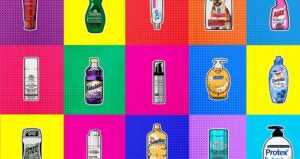Hey kids, are you trying to read the blacked-out redactions on a PDF? Simply copy and paste the text into Microsoft Word, and then read everyone’s legal secrets. It’s the digital hack to reading invisible ink.
Google learned that lesson the hard way recently when, in responding to the Texas-led antitrust suit, it accidentally revealed the existence of its secret program Project Bernanke, where it used learnings from publisher ad servers to strengthen its own ad buying technologies.
Sounds straightforward, right? Not really. As with all things ad tech, the devil has entwined itself in the details. In this episode of The Big Story, the AdExchanger team does its damndest to untangle that serpent.
There is a lot we still don’t know about Project Bernanke, including how exactly it worked and at whose expense. In corresponding with Senior Editor Sarah Sluis, Google indicated it tried to help advertisers, which makes sense given that advertisers are the ones with the money.
So as you listen to this week’s episode, please pardon our dust. Typically, we try to work things out before the podcast, but sometimes, we’ve got to figure out what’s going on in real time.












